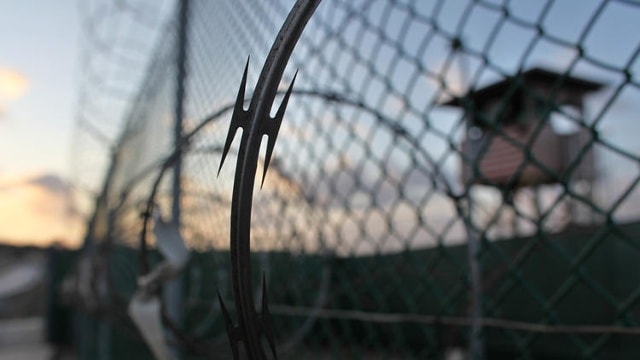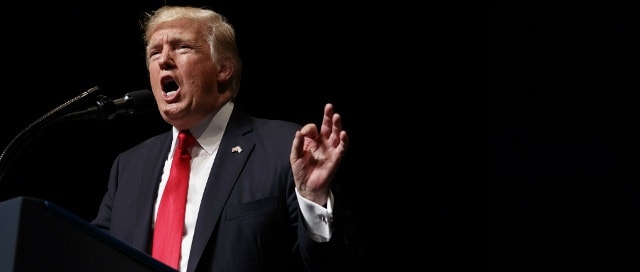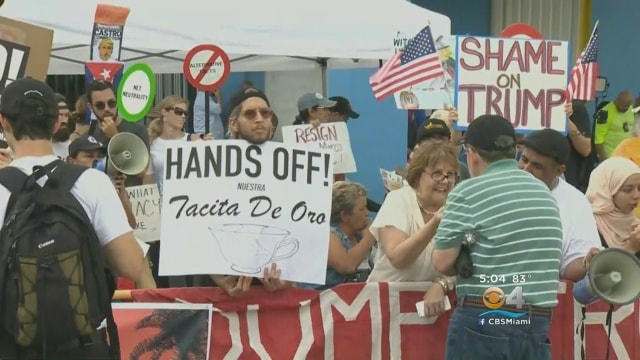US-Cuba relations are returning to the 'prison of the past'
(Baonghean)- Three years ago, then-US President Barack Obama raised hopes among the American and Cuban people for an open future in diplomatic, trade and people-to-people relations between the two countries. Now, President Donald Trump is “locking” all doors to realize that hope. Although not completely reversing the legacy of his predecessor, President Trump’s recent policy change has put the US-Cuba relationship back in the “prison of the past”. And the consequences will certainly be unpredictable.
Times change
Cuba has existed in different parts of the world’s imagination for decades. For the United States, it is the country of the Castros, the Cold War, boat protests and ideological conflict. For Latin America, it is a symbol of indomitable spirit, a legacy of democracy and economic progress despite US “repression”. For the world, it is a symbol of sovereignty and revolution. From the missile crisis (1962) to the anti-apartheid movement; from the Kennedys to Obama, this small island has placed itself at the center of world events.
Cuba is also home to more than 11 million people, and for decades they have suffered under the US embargo. Basic goods are unavailable. Businesses cannot attract investment. Cubans have been left virtually locked in an economy that has not been allowed to grow with the rest of the world.
Things changed in late 2014, when the Obama administration attempted to “break” with this past with a historic announcement: normalizing US-Cuba relations. Although it has not yet completely lifted the embargo, the US has implemented a series of measures to gradually lift restrictions on the “free island”, including officially reopening embassies in each country’s capital, easing restrictions on travel and trade between the two sides. More than a year ago, standing on the stage of a theater in the capital La Havana with the participation of Cuban President Raul Castro, US President Barack Obama declared that he wanted to “bury the last vestiges of the Cold War” and “leave behind the ideological war of the past”.
 |
| US President Donald Trump has returned US-Cuba relations to the “prison of the past”. Photo AP |
According to official statistics, just one year after the two countries resumed diplomatic relations, the number of American tourists to Cuba has increased dramatically. The two countries have also signed 12 cooperation agreements in many fields such as trade, transportation, telecommunications, and agriculture... Trade, travel, and tourism between the US and Cuba are busier than ever...
However, things changed once again after President D. Trump's speech on June 16 in Miami, home to the largest Cuban-American community in the United States. Mr. Trump announced that the United States would tighten travel regulations, prohibit US citizens from doing business with any state-owned enterprises with ties to the Cuban military and security forces, end all people-to-people exchanges and only allow family visits. President Trump's statement did not reverse all the progress in Washington-Havana relations that had just been achieved, but it showed a step back, even "reviving" the dark pages of the past.
Little benefit, much harm
President Trump’s decision has been met with opposition from Cuba, many Latin American and American countries, as well as many American congressmen and citizens. Many people call this an “outdated policy” that has been “hindering the development of the American and Cuban people.” Needless to say, restoring a tough policy toward Cuba will cause the United States more damage than benefit.
 US President Donald Trump announced a change in his predecessor Obama's policy towards Cuba. Photo AP US President Donald Trump announced a change in his predecessor Obama's policy towards Cuba. Photo AP |
First, on the economic front, Engage Cuba, an organization that advocates for a gradual restoration of relations with Havana (based in Washington DC), recently published a study showing that reversing Obama-era policies on Cuba would cost the US more than $6 billion and result in the loss of 12,000 jobs. Moreover, US airlines and travel companies clearly do not want the embargo reimposed. Many businesses that were looking to invest in Havana have now had their plans “destroyed”. Travel agencies also no longer have the opportunity to offer tours to the beautiful “island” that is only 150km away by sea.
Politically, President Trump’s decision to reverse policy toward Cuba has caused controversy within the administration. Even members of Trump’s team have argued that the move toward normalizing relations between Washington and Havana brings national security, diplomatic, and economic benefits to the United States and there is no reason to sacrifice these benefits. Vice Chairman of the US Senate Intelligence Committee Mark R. Warner also commented that the decision to reverse the process of improving US-Cuba relations sends the wrong message to the world about America’s leadership role. Clearly, the inconsistent leadership of the US administration has lost the prestige of a great power, causing the trust of international partners in the US to decline.
 |
Americans protest against Donald Trump's new policy towards Cuba. Photo: NBC |
According to some US government officials, Washington’s “turning away” from Cuba will “open the door” for US rivals to get closer to the Caribbean. In recent years, Russia has forgiven billions of dollars in debt to Cuba and has once again become the island’s main supplier of oil. Military cooperation could be the next step, including a Russian base next door to the US. In addition to Russia, other partners such as China and Western European countries will also have easier access to the “island of freedom”, especially in the context that countries have begun to build ties with Cuba over the past three years.
Obviously, from any perspective, the latest decision of the US government is a step backward in the general development trend of the world and will only cause disadvantages and negativity in the regional diplomatic environment as well as the interests of the US.
Thanh Huyen
| RELATED NEWS |
|---|

.jpg)
